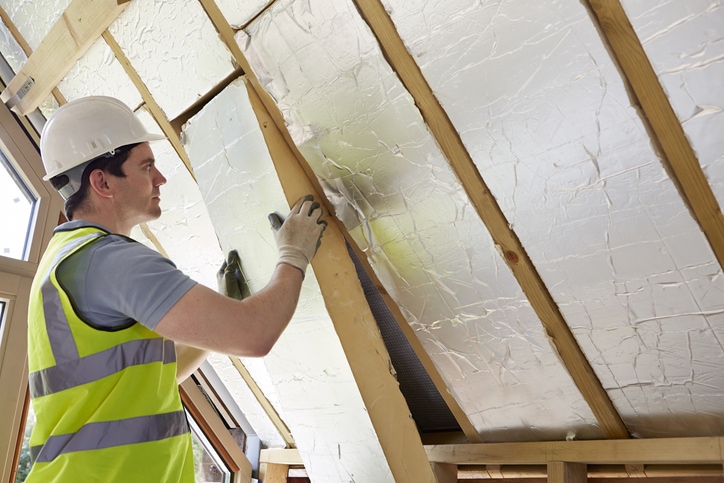What Is the Best Insulation for My Home?

Your heating system and insulation work together to maintain comfort in your central Oregon home during winter.
The correct amount of insulation placed in the appropriate places inside your home also helps your air conditioner or heat pump keep your living environment cool during the summer.
But how much insulation is enough, and where is it most effective in your Portland home?
At HomeRx, we work with fiberglass batting, blown-in cellulose, and spray foam insulation. We can guide you in selecting the best form of insulation for your home and offer solutions that improve your comfort and fit your budget.
Insulating your home protects your heating, ventilation, and air conditioning (HVAC) system from needless wear and tear. A drafty house with inadequate insulation forces your heating or cooling equipment to work harder and longer to reach and maintain the temperature you set on your thermostat.
Annual maintenance tune-ups can help prolong your HVAC equipment and keep it operating at peak performance. Adding insulation, weatherizing, and sealing air leaks in your home takes energy savings and comfort to another level.
Saving Energy Saves Money
The U.S. Department of Energy (DOE) says homeowners can save up to 20 percent on heating and cooling costs and up to 10 percent on total energy costs by adding insulation to attics, floors, crawl spaces, and basement rim joints.
Where does heat loss occur in a home? Heat typically escapes through ceilings, walls, windows and doors, the roof, the basement floor and walls, and ventilation. Doors, windows, and cracks in walls generally account for the most heat loss. The floor accounts for the least amount of heat loss.
Do you need to add insulation to each of those areas? Not necessarily. The insulation you need depends on your home’s building materials, configuration, style, how well it currently is insulated, and other factors. Not all houses in Portland, for example, require the same amount and placement of insulation. The insulation you choose for your home may not suit your neighbor’s house.
Energy Audit
The best way to determine how to stop energy waste in your home is through a professional energy audit. During an audit, our experts at HomeRx thoroughly analyze your home inside and out, inspect the heating and cooling system, evaluate insulation, and look for cracks and holes that create air leaks.
We recommend fixing any air leaks in your home before we apply insulation. Sealing holes and cracks helps to keep conditioned air from escaping your home and prevents outdoor air from entering. The result is better indoor air quality (IAQ) and less energy loss.
During an energy audit, we will identify the R-value of your insulation. R-value indicates how well a material resists heat flowing through it. The higher the number, the better the material can insulate against heat.
Climate also plays a role in determining how much R-value you need when insulating your home. The DOE recommends R-value based on geographical areas in the U.S. For example, it suggests an R-value range of R-49 to R-60 for uninsulated attics in the Bend area and an R-value as low as R-30 in the Portland area. At HomeRx, we can pinpoint how much R-value you need.
Kinds of Insulation
Insulation is available in a variety of materials and forms. Here are a few we often recommend:
- Fiberglass batts are perfect for unfinished walls, floors, and ceilings. They are available in sizes that fit easily between joists and studs. We also can cut pieces to fit around windows and other obstructions in the attic walls.
- Cellulose consists of small pieces of recycled paper that are blown into spaces such as unfinished attic floors, walls, and areas that are hard to reach or too irregularly shaped for batting.
- Sprayed-in foam works well in unfinished attics, under floors, in both existing and new walls, and in spaces with irregular shapes. This form of insulation offers good protection against moisture.
Call the Insulation Experts
Ask HomeRx how to save energy and improve your comfort by insulating your Bend, OR, home. Call us at (503) 479-5290 or request service online.
